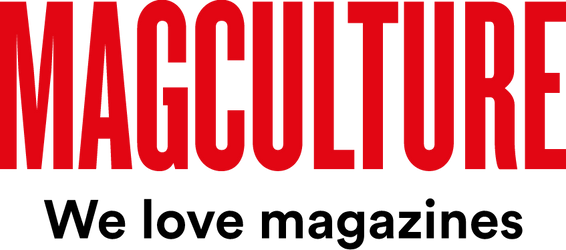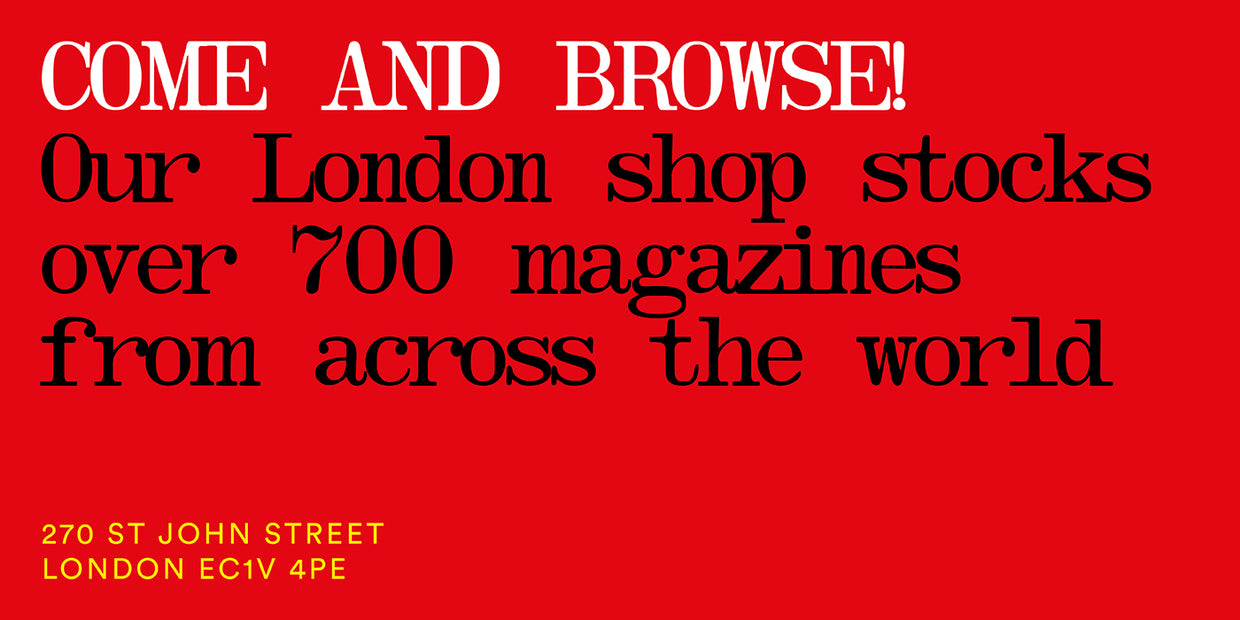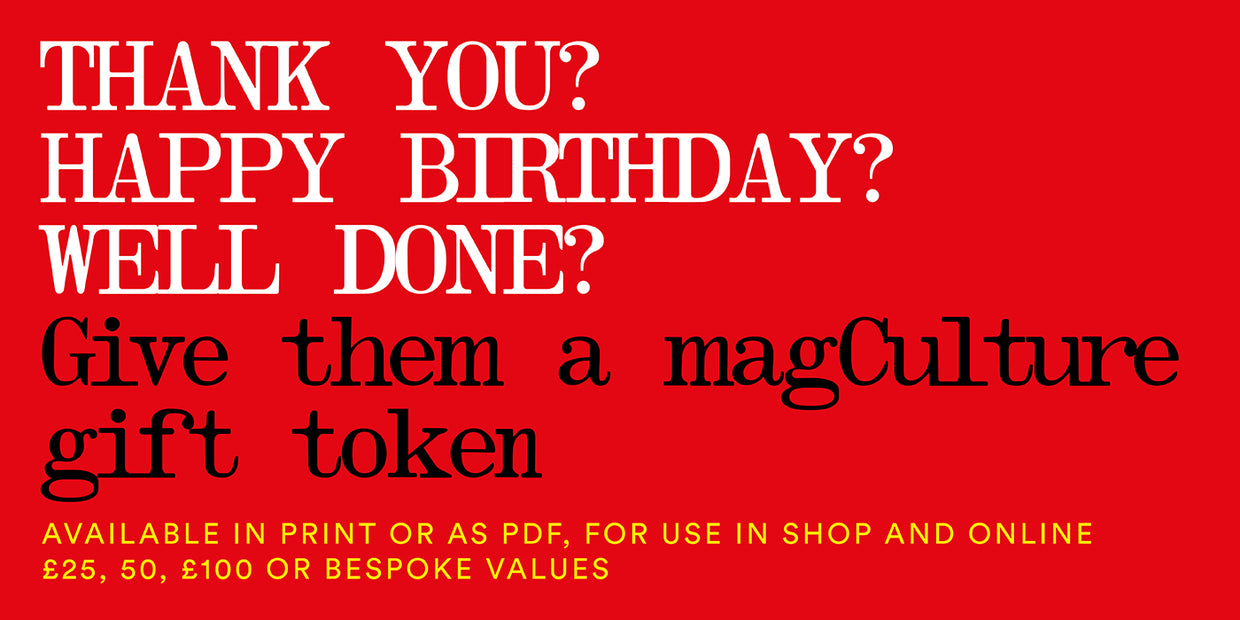
Emelyn Rude, Eaten
Alongside researching food history at Cambridge University—she’s currently studying how fish stock collapses have changed the American food system—Emelyn Rude edits, designs and publishes Eaten, the food history magazine.
Emelyn discusses the origins and inspirations of her magazine as the Party-themed 12th issue goes on sale. She also shares publishing advice and her family Christmas traditions.

What are you up to this Monday morning?
This Monday is different from most because I’m currently at home in Washington, D.C. visiting my parents for the holidays. I’m normally based in Cambridge, England but since I missed Christmas last year (thanks Covid!), I’ve spent the past few weeks camped out in my childhood bedroom.
I’ve been a graduate student since 2017 so I’ve had lots of flexibility in terms of when and where I work over the past few years. Previously this involved a lot of roaming between libraries, friends’ houses, coffee shops, and sometimes even the great outdoors, but the pandemic has restricted me largely to my room. Although I loved working from home at first, the monotony has really started to wear on me over the past few months. I’ve experimented with a lot of things in an attempt to keep life exciting and ironically I’ve found I manage existence better if I stick to a pretty strict routine.
Today the routine is basically the same as any Monday: I wake up at 7ish, do the New York Times crossword puzzle, read a little of my novel and then watch a few Premier League highlights from the weekend. Then it’s work-out time (leg day!), followed by a shower, meditation, and then going through all the little administrative bits and bobs for both my research and for Eaten.
This typically involves going through all finances, sending friendly pokes about outstanding invoices, responding to any emails that I've put off for too long, and making a mini plan of all the tasks I need to accomplish for the rest of the week. All of this is a little rushed this morning because I have a Covid booster appointment at 12:30 I need to get to!

Describe your desk and your work space
I’m currently working at the same desk where I did all my homework in high school and I love it. Somehow a very large portion of one of the sides fell off but the desk is still standing, so all the compliments to whoever made this thing back in the 80’s when my parents first bought it!
The one major downside of this room is that the heating doesn’t really work so if it gets too cold I either bundle myself up in a blanket or migrate down to do work in the kitchen for the day. (This is dangerous because there's a dog named Luna down there who doesn't believe humans should do anything besides provide scritches.)
I’m used to working wherever I find myself so I don’t really mind having to move around. The only extra bit of equipment I rely on besides my laptop is a vertical mouse so as long as I have a flat surface I am good to go. I do, however, have a tendency to just accumulate reading material regardless of whether I have a plan to actually read them, so even though I don’t normally live here my desk is already piled high with books and cookbooks and magazines.

Which magazine do you first remember?
I have always been deeply obsessed with National Geographic. I’ve been a subscriber since I was 12 and used to plaster my walls with all the beautiful photography. Even as an adult I try to read every single edition cover to cover. As you can probably tell from the large stack that has accumulated on my desk I am a bit behind on this, but I'll get there soon enough!

Which magazine matters to you the most this morning?
I’ve happily just gotten my hands on one of the recent editions of Noble Rot and my first copy of Pipette and am really looking forward to digging into both.
In addition to my many other hobbies, I am currently training to be a sommelier and wow, sometimes it feels like the wine world is stuck in the 1950s. Reading Noble Rot reminds me that there are people in the industry actually doing interesting things. I've never read Pipette before but hopefully it will inspire the same feelings!

Describe Eaten in three words.
Beautiful, nerdy, and dramatic.
How does the magazine fit with your academic research?
The magazine sort of fits with my academic research. Both are on food history—I am currently studying how historical fish stock collapses have changed the American food system—but my academic work is much drier and more technical. (I spent most of last week going through old ledgers to calculate how much fish scrap a fertilizer company received in the 1870s. Thrilling stuff!)
This difference is part of the reason I founded Eaten. I did a lot of food history research as an undergraduate and also worked as a freelance food writer after I graduated. I have always loved food history but was always annoyed about how there was no middle ground for more in-depth studies of food.
At the time, at least, it felt like you either had to write a very rigorous academic paper or you had to dumb the whole thing down into a listicle to get it published in a more mainstream food publication. I wanted Eaten to be somewhere in the middle.
Eaten and my academic research do somewhat feed off each other in that ideas I’ll encounter while reading for one will inform the other but I try to keep the two as separate as I can. I love food history as a whole but I also like experiencing it in as many different ways as I can. My academics let me be as serious and unfun as I want, Eaten lets me be creative and strange.

One of the magazine’s unique features is the archive illustrations in its pages. Where do you find these?
The internet truly is a magical place and the vast majority of the images I use are from public domain digital archives like Wikimedia Commons and the Wellcome Trust. Over the past few years I've just become really good at combing through random troves of images.
Things do get a bit tricky when a story is from the 20th century and the public domain is not at my disposal. The article always comes before the illustrations so when acquiring archival images isn't simple I have to do some workarounds.
Generally I’ll do some googling and look for vintage images I like. If I can find the copyright holder I’ll send them an email asking how I can get permission to use their images; I’ve honestly been amazed at how generous people have been with this. If no archival images are possible I will commission an illustrator but this generally happens only once or twice per year.
The images I use for social media are part of this process. If you do some digging, there are truly amazing images out there. The ones I post online are generally the ones that I haven't found a home for in the pages of Eaten.

Issue 12 is themed ‘Party’. What will you be taking from its pages to help you celebrate this Christmas?
Obviously I will be cracking open a bottle of bubbly and attempting to make a cake in the shape of a duck! But besides that the holidays are pretty low key this year; I think we are all just happy to be together again. My family is not particularly religious so unsurprisingly most of our celebrations surround eating delicious food and not the actual birth of baby Jesus.
My mom always makes giant trays of enchiladas for Christmas eve and then we have this magical egg casserole thing from my Great Aunt Mary on Christmas morning after opening presents. I think an aunt and uncle will make an appearance at some point and so will some family friends who have a dog that Luna doesn't seem to like. Add to that all the gelato my dad has been making lately—making ice cream has been his quarantine hobby—and it's the perfect recipe for a lovely Christmas.
Please share one piece of advice for somebody wanting to launch their own publication.
You really have to believe in what you are doing, especially if your subject is not mainstream. It has really been an uphill battle to get people to care about food history and to justify the existence of a little niche publication like Eaten.
There have been many moments where I’ve been really close to quitting because it can be so disheartening to grind away at publishing a magazine only to have people be ambivalent about it. But at the end of the day I’ve always thought that this subject was worthwhile and that my work is interesting and that's what kept me going in some of the more trying times.
What are you most looking forward to this coming week?
Magical egg casserole thing!


